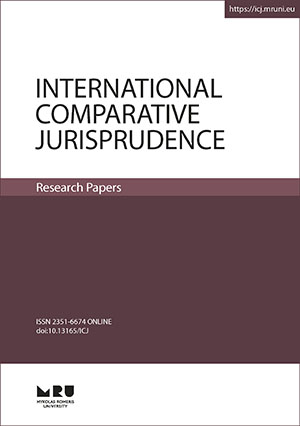THE EUROPEAN COURT OF HUMAN RIGHTS: INTERNET ACCESS AS A MEANS OF RECEIVING AND IMPARTING INFORMATION AND IDEAS
THE EUROPEAN COURT OF HUMAN RIGHTS: INTERNET ACCESS AS A MEANS OF RECEIVING AND IMPARTING INFORMATION AND IDEAS
Author(s): Gergely GosztonyiSubject(s): International Law, Human Rights and Humanitarian Law
Published by: Mykolas Romeris University
Keywords: freedom of expression; media; human rights; internet shutdown, collateral blocking; excessive blocking; wholesale blocking;
Summary/Abstract: "The Internet has now become one of the principal means by which individuals exercise their right to freedom to receive and impart information and ideas." (European Court of Human Rights, cited in Cengiz and Others v. Turkey). Are these rights merely window dressing for some countries? Perhaps the most important question is what lies behind this so-called Potemkin village that is very much in evidence?[1] For example, in 2019 there were at least 213 documented internet shutdowns around the world, with the number of countries experiencing shutdowns increasing from 25 in 2018, to 33 in 2019 – or 17% of the countries in the world today. In this respect, Russian and Turkey are standouts as landmark cases that have come before the European Court of Human Rights (ECtHR). Here, the fundamental issue is blocking access to the Internet, regardless of the methods used by each State. This paper examines the use of shutdowns in Russia and Turkey with a view to understanding how these States in particular are responding to the propagation of fake news, hate speech, content that promotes violence, and how to balance drastic measures (shutdowns) with the need to ensure public safety and/or national security and freedom of expression.
Journal: International Comparative Jurisprudence
- Issue Year: 6/2020
- Issue No: 2
- Page Range: 134-140
- Page Count: 7
- Language: English

